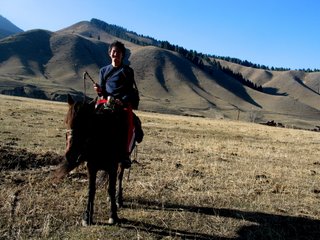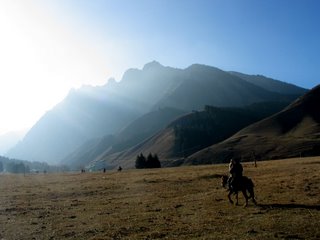I’ve been thinking lately that if I were born during a different time and under a different set of circumstances, my relative moral position could be quite different. I have never been forced to make any real decisions regarding a specific moral stance. At least not like the decisions people were forced to make during the chaotic times of the Cultural Revolution. I ask myself, “Am I lucky?” and this begs the question, “if so, then why?” I have not had the misfortune of being born during the times of a great upheaval, during the time of political strife and uncertainty. The closest thing that I’ve ever had to deal with was 9/11 and the impression it left on me was shallow. It’s hard for me to contemplate a life that is so wrapped up in the movement of the time that things like philosophizing and thinking are considered bourgeois privileges.
The more I think about it the more I am convinced that in the direst times, the most unjust and inexplicably irrational of situations, what we need most is an immutable moral ground from which we can draw support and strength from. Without this ground, we are prone to the iniquities of human nature, which include corruption, jealousy, dishonesty, and vengeance. For example, during the Cultural Revolution, under extreme pressure from the general social unrest that dominated the lives of every Chinese, people from every social strata were forced to take sides and point fingers.
If I had to sum up the authors opinion on Mao, I would say that the author would have had no qualms with likening Chairman Mao with Satan. His iron grip on the nation was intensified by his childish insecurity. He commanded nothing less than absolute power and control; deification was merely a means to this end. Mao had no moral grounding; to him, moral grounding was bourgeois—his actions and thoughts became the epitome of moral and ethical conduct. And as expected of any morality based on human action—it vacillated according to his mood.
In order for me to really comprehend life under Mao, I need a complete paradigm shift. Ten years of every Chinese’s life was spent in a cultureless vacuum. If someone told me today that I had to give up ten years of my life, I would scream high treason at the mere thought. Trying to wrap my head around the situation of
Perhaps the saddest part of the story is that most Chinese were powerless to change the situation. Even the top leaders that propagated the deification of Mao were at the mercy of the tyrant’s bloodthirsty quest for complete dominance; if the only people capable of standing up to Mao lacked the courage to do so, what could the people hope for? People sincerely believed in Communism, but they failed to realize that their Chairman was interested in Communism insofar that it gave him the justification to lead and unite the people to fulfill his purposes. I’m still not sure what to make of the Cultural Revolution, meaning I don’t know what to take away from it as an American citizen who has lived a fairly privileged life. I’m not satisfied with just thinking that I was lucky to have been born in





